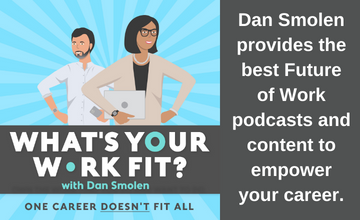Podcast: Play in new window | Download (Duration: 31:40 — 29.0MB)
Give Piece a Chance Part 2: An Entrepreneur Disrupts Chicago’s Food Scene
About this episode:
“We didn’t have the luxury of a soft opening. So, we’re packed, it’s hard getting the product out of the kitchen, because we really don’t know how to do volume yet. And we’re learning how to do service. So, we’re pissing off people right and left and it took awhile to settle down. And fortunately, it did. But definitely it was a double-edged sword. And we were in the papers; we were in the media all of the time. [There were] cameras there!”
– Billy Jacobs, founder of Piece Pizzeria & Brewery
In this episode, we learn how one entrepreneur dared—not once, but twice—to disrupt the established food scene in a major American city.
In 1983, along with his three brothers, Billy Jacobs arrived in Chicago with a dream: to bring fresh New York style bagels to the city’s food scene. Their effort was a smashing success. After scaling Jacobs Brothers Bagels to 20 stores and hundreds of employees, they took a buy-out offer. Billy’s brothers went on to second-act careers while Billy started dreaming again, to turn his next big disruption into reality.
That’s when his idea to bring to Chicago the classic New Haven-style pizza of his youth took shape. Soon after, Billy opened Piece Pizzeria and Brewery in Chicago’s trendy Wicker Park neighborhood.
According to industry trade publication Pizza Today, Piece Pizzeria and Brewery is the highest-grossing single location pizzeria in the United States.
Joining us on Give Piece a Chance Part 2 is our lifelong friend Stu Katz who provided wise counsel when Billy established his restaurants.
In this second part of a two-part podcast episode, we discover how:
- Piece paired great pizza with award winning ales [starts at 2:08]
- The partnership with Rick Nielsen of Cheap Trick happened [starts at 5:17]
- Piece Out became a successful delivery operation [starts at 11:09]
- Localism and community philanthropy through Pilot Light Chefs enmeshed into Piece’s business [starts at 16:06]
- Piece collaborated with Chicagoland food legend “Hot Doug” Sohn [starts at 19:50]
- Along with creative director Jim Furrh, Piece created provocative and highly effective branding, advertising, and marketing [starts at 21:46]
- Billy got back into the bagel business with brobagel [starts at 26:53]
About our guests:
Billy Jacobs received a Bachelor of Arts in History from Boston University. By his own admission, majoring in history was a wise study track, for a degree in business administration would probably have ruined his entrepreneurial dreams. The New Haven, Connecticut native is a lifelong Ultimate Frisbee player and an avid Chicago Cubs fan who attends almost all home games.
Stu Katz received a Bachelor of Science degree from the Park School of Communications at Ithaca College and a Masters of Arts in Corporate Communications from Seton Hall University. The New Haven, Connecticut native is also the founder and executive producer of Elm City Communications, a corporate communications services company headquartered in New Jersey.
EPISODE DATE: October 11, 2019
Social media:
